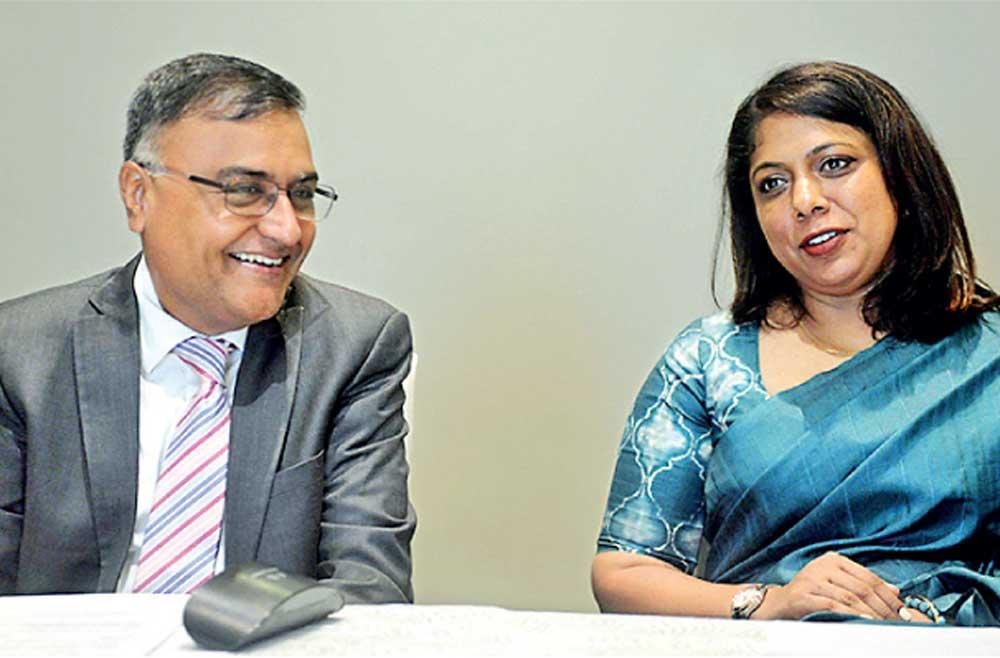19 Jul 2024 - {{hitsCtrl.values.hits}}

Visa Vice President and Head of Products for India & South Asia, Ramakrishnan Gopalan and Visa Country Manager for Sri Lanka & Maldives, Avanthi Colombage at the media roundtable.
Pic by Pradeep Pathirana
By Nuzla Rizkiya
Sri Lanka has emerged as the fastest in South Asia in embracing digital payments, a global giant in digital payments said.
The post-pandemic behaviour among Sri Lankans has shown a notable shift, with a growth of at least 20 percent in digital transactions since 2019, particularly among debit card holders according to officials of the Visa Corporation.
“Sri Lanka is clearly one of our fastest-growing markets in South Asia. We see a strong recovery from the economic downturn. More and more consumers are entering the digital payment ecosystem, which is a very healthy indicator for the country,” Visa Vice President and & Head of Products for India & South Asia, Ramakrishnan Gopalan said.
“We believe it will continue to grow at high double digits in the next few years. It is very clear that the next wave of growth in terms of digital payments and the penetration of card-like instruments will keep happening,” he added while speaking at a media roundtable hosted by the company.
The company is gearing up to relaunch its Infinite card initiative, one of the first relaunch campaigns in the region targeting its high-affluent consumer category.
He noted that affluent consumers in Sri Lanka are experiencing growth rates at least threefold higher than non-affluent customers.
“We see an increasing growth for the evolution of credit cards here as we speak. The emerging affluent consumers wanting more and we want to give them more” he said.
Another significant trend observed is the substantial increase in tap-and-pay transactions in the country. Before the Covid pandemic, the virtual transaction hovered around 3 percent, but recent data revealed a remarkable rise to approximately 35 percent month-on-month, according to Visa’s Country Manager for Sri Lanka & Maldives, Avanthi Colombage.
“Consumers are engaging more in digital platforms and digital payment channels. We see a lot of demand in the travel and lifestyle segments. I think this is more emotionally appealing for Sri Lankans, especially post the pandemic,” Colombage stressed.
However, despite the country recording a healthy surge in consumer spending, with US$ 42.65 billion for 2024, there is a need for education regarding cashless payments for both merchants and consumers in the country.
“A challenge that we see is there is a little bit of education needed to elevate the knowledge of merchants. Typically, the cost of cashless transactions ranges from 11-14 percent in different markets. Because we are so used to accepting cash, consumers struggle to understand the logic of the leakages, security, and benefits of cashless transactions,” Colombage explained.
Credit card balances in Sri Lanka too declined by Rs. 1,894 million to an outstanding balance of Rs. 149.7 billion in May, signaling that people are still reluctant to use credit cards due to the exponentially high rates.
22 Dec 2024 3 hours ago
22 Dec 2024 3 hours ago
22 Dec 2024 6 hours ago
22 Dec 2024 6 hours ago
22 Dec 2024 6 hours ago